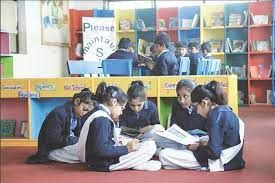Analytical reasoning is a process whereby the students are engaged in such academic tasks
which requires students to gather information related to a problem to be solved.
The steps in analytical reasoning are gathering information about the problem,
re-represent the collected information to be processed, developing insights
regarding how to choose the alternative options and produce a meaningful
result (Fisher & Pottenger, 2009). The analytical reasoning is influenced
by the notation used by the students. In their study, Eskirtt, and Arthurs
(2006) found that the students who used notations performed in an analytical
reasoning task than the students who did not use notations for solving a
problem assigned to solve through analytical reasoning.
According to the reflective discussions based on their experiences of secondary school teachers, the students struggle using traditional practices in classroom situations to complete their academic tasks. They just complete their academic tasks with a shallow level of understanding and surface-level thinking while working on the assigned tasks. They have limited ways to look into the situations to solve problems in classroom activities. The secondary school students follow the steps as taught by the teachers in traditional ways to understand any concept followed by producing the same limited interpretation without going beyond the teachers’ lectures and textbooks.
Their sharing ideas during discussions on
particular topics reveal that they do not look into the matter from different
perspectives. The secondary school students mostly rely on the following ideas of teachers and their colleagues in carrying out academic tasks.
Attempting papers during examinations, it is found that they just provide
responses on the basis of rote memorization and produce the same ideas given in
textbooks on certain topics. There is only the same style of carrying out academic
tasks among all the secondary schools. The purpose of their learning from
classroom teaching and learning is to pass the examination and get good grades
at any cost and for that reason, they do not try new and alternative techniques
to complete their academic tasks in the classroom.
The students are
not oriented with the dynamics of developing skills to effectively work out
academic tasks during teaching-learning interplay. The multiple intelligences
and learning styles of the students are not tapped properly in such
transmission mode of instruction which results in either getting the students
bored due to rote memorization of facts and knowledge.
As a result, a very big gap is found between the classroom practices for developing analytical
reasoning skills of the students and the current situation of performance in
classroom by novice students. These students of secondary schools have
completed at least eight years of schooling and entered into the secondary level without
any formal analytical reasoning practice during the classroom teaching and
learning process.

